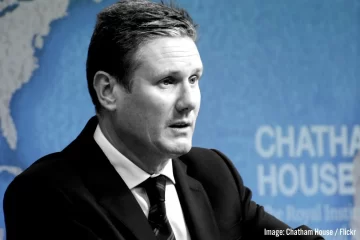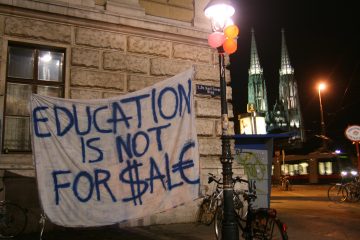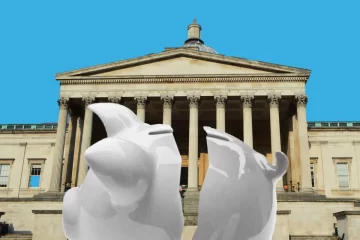Recently a young worker and member of the Leeds Marxist Society travelled to Cuba as an international delegate to the May Day celebrations. We publish below his thoughts on what is happening in Cuba now and where it is going in the future.
————————————————-
 I had the opportunity to go to Cuba this year as an international delegate to the May Day celebrations.
I had the opportunity to go to Cuba this year as an international delegate to the May Day celebrations.
The background to my visit is that the island has suffered recently: despite the collapse of the Soviet Union the revolution remained unbowed: the pride of the Cuban people (free healthcare and education with the nationalised planned economy at its core) remained intact. This owed no small part to the role of individuals like Castro at the head of the revolution, the presence of an older generation who fought to overthrow capitalism and who would fight again to prevent its return (we had the honour of meeting a number of such individuals) and the deep roots that the revolution has among the people.
However, scars of the Special Period remain in evidence such as the huge swathes of land previously used for sugar cane production that are now overgrown. Even now this absurdly fertile land still imports most of its food! Further to that the 2008 crisis has hit Cuba hard. With the price of nickel and other exports having collapsed and credit hard to come by the country has been spending more than it has had coming in and has faced a balance of payments crisis.
As a result in 2011 a number of “reforms” were announced which included cuts to benefits and 500,000 public sector job losses. More recently 150,000 job losses have been announced in the healthcare system. There has also been a reciprocal liberalisation allowing for the operation of small businesses employing up to 50 people and foreign investment has been brought into the country – with the hope that the private sector will absorb public sector job losses.
Walking round Havana you can see the consequences. Whilst inequality is not what it is in, say, Britain, it is still there. In the Old City you get a real feel for the effects of liberalisation. Everyone has a “business” set up in their front doorway selling Che shirts, memorabilia, nick-nacks and fake cigars. People grab you on the street to sell you anything: strawberries, cigars, sweets and even drugs. On the other hand there are the “successful” businesses – the beautiful private restaurants that could fit in the bourgeois neighborhood of any modern European capital. These “well to do” small business people represent a new social force in Cuba – a force which will surely push in the direction of the full restoration of capitalism, with all the consequences that would have.
Talking to the men and women hawking goods on the streets we asked them about this inequality. As one former mechanic explained to us: it’s all very good allowing people to set up businesses in their houses but if you only have one room it’s hardly going to be viable whereas if you are already privileged enough to have seven rooms it is a different matter. The reforms only serve to magnify existing differences. When I asked the same man what he thought about socialism in general he gave me an answer which made me wince because it is so familiar to any socialist living in a capitalist society, “well it’s all very good in theory but it doesn’t work in practice”.
Inequality has created a cynical mood which has been misdirected at the very possibility of socialism itself. Why? Part of the problem is that whilst the Cuban revolution has had to take a step backward, this enforced retreat has instead been regarded as a step forward towards a new model of socialism by some within the leadership of the revolution itself: a new “sustainable”, “efficient” approach to socialism, encapsulated in the main slogan of the May Day parade, “unity and efficiency for our socialism”. There are doubtless some who believe this and who believe honestly that the threat of capitalist restoration can be controlled.
However, there are doubtless others in the bureaucracy of the Cuban state who see what has happened in China, who see the millionaire “communists” and who see in the potential of capitalist restoration the possibility of lining their own pockets. It would be naive to imagine that these elements do not exist within a privileged bureaucracy which is largely unaccountable to the Cuban masses. No one is talking about the “Chinese model” because everyone is aware of the hypocrisy of the Chinese “Communists”. However, what I did hear talk about was the “Vietnamese model” and it’s being talked about as a viable alternative openly in the main organ of the Communist Party, “Granma”. But the fact is that the Vietnamese model is the same as the Chinese model: i.e. the model of capitalist restoration.
There are some people who think it isn’t right to be critical of the process in Cuba – that it isn’t a part of solidarity. I disagree. I might add that Cuba doesn’t need fair-weather “friends” who will cheer her on regardless of ominous signs – those same people who cheered on “real existing socialism” in the Soviet Union – right up until the point that it ceased to really exist! With such “friends” who needs enemies? A real friend raises the alarm when you’re in trouble. And Cuba faces some serious problems. The way I see it Cuba faces a forking road: bureaucratic privilege, corruption and the threat of capitalist restoration lead in one direction (you might call it the Vietnamese road!) or a turn to workers’ democracy, internationalism and the fight to spread the Cuban revolution through the world socialist revolution leads in the other.
by Ben Curry, Leeds Marxists




1 Comment
Robin · June 4, 2014 at 12:49 pm
It is true that they have permitted some forms of private enterprise and encourage self-employment and co-operatives, but this article is unduly cynical and prejudiced rather than passing judgement according to the facts. For example, it might discuss the need for Cuba to have “sustainable and prosperous socialism” (not a bad thing surely) in order to continue confronting imperialism and the undermining of its social order by capitalism. If it cannot have a good prosperous society, then its citizens will not support its socialism. As you say, Cuba has huge problems with too expensive imports and an inefficient economy – with fallow land – after the collapse of the USSR, which is why foreign capital is desired to invest in a sovereign economy which can address the disparity in cost between foreign goods and Cubans’ wages, etc. Furthermore, there are trade unionists and elected officials with extensive executive power in the National Assembly. If corruption and anti-democratic behaviour sweeps the government, then hopefully the representatives of the workers will stop it.
Comments are closed.